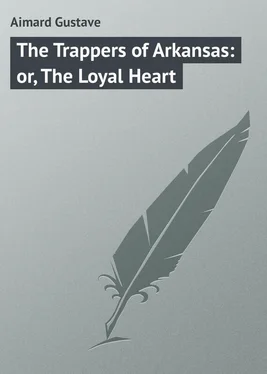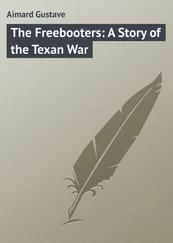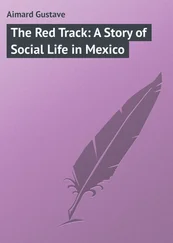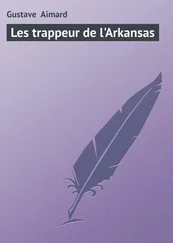Gustave Aimard - The Trappers of Arkansas - or, The Loyal Heart
Здесь есть возможность читать онлайн «Gustave Aimard - The Trappers of Arkansas - or, The Loyal Heart» — ознакомительный отрывок электронной книги совершенно бесплатно, а после прочтения отрывка купить полную версию. В некоторых случаях можно слушать аудио, скачать через торрент в формате fb2 и присутствует краткое содержание. Жанр: foreign_prose, foreign_adventure, на английском языке. Описание произведения, (предисловие) а так же отзывы посетителей доступны на портале библиотеки ЛибКат.
- Название:The Trappers of Arkansas: or, The Loyal Heart
- Автор:
- Жанр:
- Год:неизвестен
- ISBN:нет данных
- Рейтинг книги:3 / 5. Голосов: 1
-
Избранное:Добавить в избранное
- Отзывы:
-
Ваша оценка:
- 60
- 1
- 2
- 3
- 4
- 5
The Trappers of Arkansas: or, The Loyal Heart: краткое содержание, описание и аннотация
Предлагаем к чтению аннотацию, описание, краткое содержание или предисловие (зависит от того, что написал сам автор книги «The Trappers of Arkansas: or, The Loyal Heart»). Если вы не нашли необходимую информацию о книге — напишите в комментариях, мы постараемся отыскать её.
The Trappers of Arkansas: or, The Loyal Heart — читать онлайн ознакомительный отрывок
Ниже представлен текст книги, разбитый по страницам. Система сохранения места последней прочитанной страницы, позволяет с удобством читать онлайн бесплатно книгу «The Trappers of Arkansas: or, The Loyal Heart», без необходимости каждый раз заново искать на чём Вы остановились. Поставьте закладку, и сможете в любой момент перейти на страницу, на которой закончили чтение.
Интервал:
Закладка:
After these words, Don Ramón crossed his arms upon his breast, and appeared to reflect.
No one durst hazard a word in favour of the accused; all heads were bent down, all hearts were palpitating.
Rafaël was beloved by his father's servants on account of his intrepidity, which yielded to no obstacles, for his skill in managing a horse, and in the use of all arms, and more than all, for the frankness and kindness which formed the most striking features of his character. In this country particularly, where the life of a man is reckoned of so little value, everyone was inwardly disposed to excuse the youth, and to see nothing in the action he had committed but the result of warmth of blood and hasty passion.
Doña Jesuita arose; without a murmur she had always bent to the will of her husband, whom for many years she had been accustomed to respect; the mere idea of resisting him terrified her, and sent a cold shudder through her veins; but all the loving powers of her soul were concentrated in her heart. She adored her children, Rafaël in particular, whose indomitable character stood more in need than the others, of the watchful cares of a mother.
"Sir," she said to her husband, in a voice choked with tears, "remember that Rafaël is your first-born; that his fault, however serious it might be, ought not to be inexcusable in your eyes, as you are his father; and that I – I – " she continued, falling on her knees, clasping her hands and sobbing, "I implore your pity! pardon, sir! pardon for your son!"
"Don Ramón coldly raised his wife, whose face was inundated with tears, and after obliging her to resume her place in her chair, he said, —
"It is particularly as a father, that my heart ought to be without pity! Rafaël is an assassin and an incendiary; he is no longer my son!"
"What do you mean to do?" Doña Jesuita cried, in accents of terror.
"What does that concern you, madam?" Don Ramón replied harshly; "the care of my honour concerns me alone. Sufficient for you to know that this fault is the last your son will commit."
"Oh!" she said with terror, "will you then become his executioner?"
"I am his judge," the implacable gentleman replied in a terrible voice. "Nô Eusebio, get two horses ready."
"My God! my God!" the poor mother cried, rushing towards her son, whom she folded closely in her arms, "will no one come to my succour?"
All present were moved; Don Ramón himself could not restrain a tear.
"Oh!" she cried with a wild joy, "he is saved! God has softened the heart of this inflexible man!"
"You are mistaken, madam," Don Ramón interrupted, pushing her roughly back, "your son is no longer mine, he belongs to my justice!"
Then fixing on his son a look cold as a steel blade, he said in a voice so stern that in spite of himself it made the young man start.
"Don Rafaël, from this instant you no longer form a part of this society, which your crimes have horrified; it is with wild beasts that I condemn you to live and die."
At this terrible sentence, Doña Jesuita took a few steps towards her son, but, tottering, she fell prostrate – she had fainted.
Up to this moment Rafaël had, with a great effort, suppressed in his heart the emotions which agitated him, but at this last accident he could no longer restrain himself; he sprang towards his mother, burst into tears, and uttered a piercing cry:
"My mother! my mother!"
"Come this way," said Don Ramón, laying his hand upon his shoulder.
The boy stopped, staggering like a drunken man.
"Look, sir! pray look!" he cried, with a heartbroken sob; "my mother is dying!"
"It is you who have killed her!" the hacendero replied coldly.
Rafaël turned round as if a serpent had stung him; he darted at his father a look of strange expression, and, with clenched teeth and a livid brow said to him,
"Kill me, sir; for I swear to you that in the same manner as you have been pitiless to my mother and me, if I live I will be hereafter pitiless to you!"
Don Ramón cast upon him a look of contempt.
"Come on!" he said.
"Come on, then!" the boy repeated in a firm tone.
Doña Jesuita, who was beginning to recover her senses, perceived the departure of her son, as if in a dream.
"Rafaël! Rafaël!" she shrieked.
The young man hesitated for a second; then, with a bound, he sprang towards her, kissed her with wild tenderness, and rejoining his father, said —
"Now I can die! I have bidden adieu to my mother!"
And they went out.
The household, deeply moved by this scene, separated without communicating their impressions to each other, but all penetrated with sincere grief.
Under the caresses of her son, the poor mother had again lost all consciousness.
CHAPTER IV.
THE MOTHER
Two horses, held by the bridle by Nô Eusebio, were waiting at the door of the hacienda.
"Shall I accompany you, señor?" asked the major-domo.
"No!" the hacendero replied drily.
He mounted and placed his son across the saddle before him.
"Take back the second horse," he said; "I do not want it."
And plunging his spurs into the sides of his horse, which snorted with pain, he set off at full speed.
The major-domo returned to the house, shaking his head sadly.
As soon as the hacienda had disappeared behind a swell in the ground, Don Ramón stopped, drew a silk handkerchief from his breast, bandaged the eyes of his son without saying a word to him, and then again resumed his course.
This ride in the desert lasted a long time; it had something dismal about it that chilled the soul.
This horseman, clothed in black, gliding silently along through the sands, bearing before him on his saddle a securely-bound boy, whose nervous starts and writhings alone proclaimed his existence, had a fatal and strange aspect, which would have impressed the bravest man with terror.
Many hours had passed without a word being exchanged between the son and the father; the sun began to sink in the horizon, a few stars already appeared in the dark blue of the sky – but the horse still went on.
The desert, every instant, assumed a more dismal and wild appearance; every tree of vegetation had disappeared; only here and there heaps of bones, whitened by time, marbled the sand with livid spots; birds of prey hovered slowly over the horsemen, uttering hoarse cries; and in the mysterious depths of the chaparrals, wild beasts, at the approach of night, preluded their rude concerts with dull roarings.
In these regions twilight does not exist; as soon as the sun has disappeared, the darkness is complete.
Don Ramón continued to gallop on. His son had not addressed a single prayer to him, or uttered a single complaint.
At length, towards eight o'clock, the horsemen stopped. This feverish ride had lasted ten hours. The horse panted and throbbed, and staggered at every step.
Don Ramón cast an anxious glance around him; a smile of satisfaction curled his lip. On all sides the desert displayed its immense plains of sand; on one alone the skirt of a virgin forest cut the horizon with its strange profile, breaking in a sinister manner the monotony of the prospect.
Don Ramón dismounted, placed his son upon the sand, took the bridle from his horse, that it might eat the provender he gave it; then, after having acquitted himself of all these duties, with the greatest coolness he approached his son, and removed the bandage from his eyes.
The boy remained silent, fixing upon his father a dull, cold look.
"Sir!" Don Ramón said, in a sharp, dry tone, "you are here more than twenty leagues from my hacienda, in which you will never set your foot again under pain of death; from this moment you are alone, you have no longer either father, mother, or family; as you have proved yourself almost a wild beast, I condemn you to live with wild beasts; my resolution is irrevocable, your prayers could not change it. Spare them then!"
Читать дальшеИнтервал:
Закладка:
Похожие книги на «The Trappers of Arkansas: or, The Loyal Heart»
Представляем Вашему вниманию похожие книги на «The Trappers of Arkansas: or, The Loyal Heart» списком для выбора. Мы отобрали схожую по названию и смыслу литературу в надежде предоставить читателям больше вариантов отыскать новые, интересные, ещё непрочитанные произведения.
Обсуждение, отзывы о книге «The Trappers of Arkansas: or, The Loyal Heart» и просто собственные мнения читателей. Оставьте ваши комментарии, напишите, что Вы думаете о произведении, его смысле или главных героях. Укажите что конкретно понравилось, а что нет, и почему Вы так считаете.












